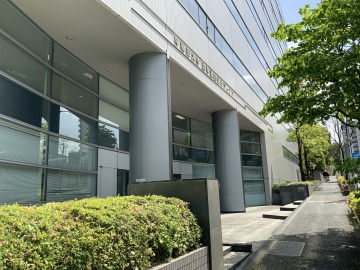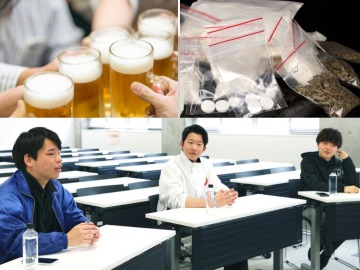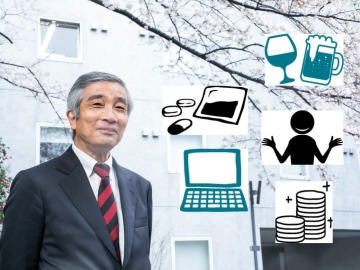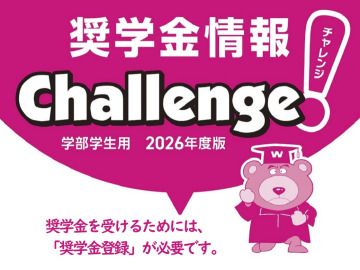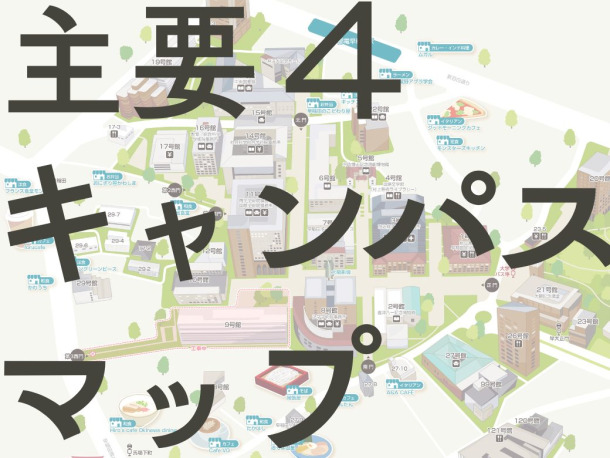ハラスメントと聞いて、皆さんは何を思い浮かべますか? 昨今、カスハラやモラハラなどの造語が増えている一方で、「何がハラスメントに当たるか、あいまいかも…」と思う早大生もいるかもしれません。そこで今回、早大生の代表としてSJC学生スタッフ3人を招き、それぞれが考えるハラスメントの種類や対処法、大学への提言などを話し合ってもらいました。さらにその内容に対し、早稲田大学コンプライアンス推進室からのアドバイスも記載。一人一人が心地良い学生生活を送るために、ハラスメントについて学び直してみましょう!
「私たちが今ハラスメントについて思うこと」を本音で話してみた
SJC学生スタッフ
政治経済学部 4年 池田 守(いけだ・まもる)
文学部 4年 加藤 志織(かとう・しおり)
教育学部 3年 渡辺 詩乃(わたなべ・しの)
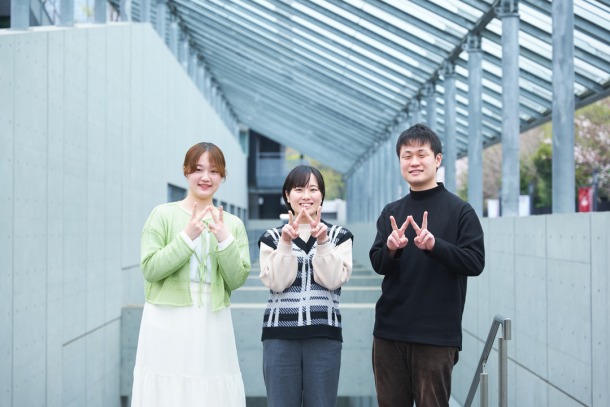
戸山キャンパス 早稲田アリーナにて(左から)渡辺さん、加藤さん、池田さん
「ハラスメント」って何を指す?
――「ハラスメント」と聞いてまず思い浮かぶことはなんでしょうか?
池田:パッと浮かぶのは「パワハラ」や「セクハラ」。あとは20歳未満飲酒を含めた「アルハラ」でしょうか。サークルの幹事長を務めているのですが、大学宛てに飲酒に関する誓約書を提出したり、サークルのメンバーとも注意し合ったりしています。
渡辺:最近話題になった「マルハラ」を聞いて、いろんなハラスメントがあるんだなと思いました。
池田:「。」で終わる文章を送ることで、相手に威圧感を感じさせるというものですよね。それこそ日常のLINEのやりとりで「。」は使わないんですけど、サークルで仕事を割り振るときなどは、どうしても文体が硬くなりがちで。「それ、マルハラだと思います」と言われたこともあります。だから、最後に絵文字を付けたりして気を付けるようにしていますが、不快になる人がいないかどうか、常日頃から気を付けなきゃいけないかなと感じました。
加藤:私が気になるのは「アカハラ」です。上の立場にいる教員から学生に対して、もしくは下の立場の教員に対してのハラスメントだと認識しています。実際、先生の好き嫌いで学生への対応が変わっているかも? と感じたことがあります。良い発表をした学生は遅刻してもとがめず、定刻通りに来て普通に発表した学生を強く批判するような場面を見たときに「これってアカハラなのかな?」と思ってしまいました。

\コンプライアンス推進室からのアドバイス/
早稲田大学での「ハラスメント」の定義をお伝えします
早稲田大学は2004年に「早稲田大学におけるハラスメント防止に関するガイドライン」を制定し、ハラスメントの防止に努めています。ここでのハラスメントとは、優位的地位や指導上の地位、職務上の地位、継続的関係を利用して、相手の意に反して行われる言動によって、相手に不利益や不快感を与えることを言います。大学におけるハラスメントとしては主に以下の3つがあります。
- 勉学・教育研究に関連する言動による「アカデミック・ハラスメント」(アカハラ)
- 職務上・就学上の地位や人間関係の優位性を背景にした不適切な言動による「パワー・ハラスメント」(パワハラ)
- 性的な言動による「セクシュアル・ハラスメント」(セクハラ)
これに限らず、ストーカー行為、飲酒の強要、言葉や態度による精神的嫌がらせ、妊娠・出産や育児・介護休業などに関する不適切な言動などのハラスメントもあります。また、相手の属性に関する機微な個人情報について本人の意に反して正当な理由なく暴露することもハラスメントにあたります。
なお、不快だと感じたことが全てハラスメントに該当するわけではありません。厳しい言動であっても、その目的や様態に教育指導上の正当性・妥当性のある場合はハラスメントに該当しないこともあります。どのような状況・意図での言動なのかなどを踏まえて判断する必要があるのです。例えば、誤った化学薬品の扱いをした学生がいて、教員が「何やってるんだ、やめろ!」などと厳しい表現で注意したとしても、それは危険を回避するための発言であり、必ずしもハラスメントに該当するとは限りません。
早稲田大学では、そのときの状況などを調査・確認した上で、ハラスメントに該当するかを判断します。先ほどの「アカハラかもしれないエピソード」は、その詳細が分からないため、直ちにハラスメントに該当すると判断することはできません。
もしハラスメントに遭遇したら…相談先は? 対処法は?
――大学外で「ハラスメント」に遭遇することはありますか?
渡辺:アルバイト先の人のボディータッチが多くて嫌だった経験があります。ただ、職場のかなり上の立場の人だったので、働きづらくなるのは嫌だし、それ以外の同僚とは良い関係を築けていたので、どうしても言いにくかったです。
池田:就職活動でのハラスメントもありますよね。例えば、内定を出すから就活を終えて、よその選考や内定は辞退してください、という「オワハラ」。僕自身は経験していませんが、就活をしていると「オワハラ」という言葉を聞く機会はあります。
渡辺:友人が以前、サークルの大先輩から何度も食事に誘われて大変、と言っていました。実際はご厚意で食事をごちそうしてくれているようなのですが、何度も誘われるのはちょっと…と。自分一人の判断で先輩たちとのつながりを切るわけにもいかないからと、ストレスを抱えていましたね。

――実際に「ハラスメントかも」と感じた場合に、どうすればいいと思いますか?
渡辺:大学での出来事だったら、信頼できるところに相談してみるとか? でも、どこに相談すればいいのかは正直分からないです。
池田:例えば僕がサークルの先輩からハラスメントされたとして、いったんサークルとは関係のない第三者の友人に相談するなど、客観的に状況を見てもらって、「これはハラスメントなのかどうか」を判断するのは1つの方法かなと思います。
加藤:一人で抱え込まずに、他の頼れる人や共感してくれる人を見つけることが大切。例えば、「アカハラ」を受けた場合、自分の担当教員以外にも大学にはさまざまな先生がいらっしゃいます。私も実際、受講していた授業で困ったとき、他学部の先生が相談に乗ってくれました。今振り返ると、そこから「コンプライアンス相談窓口」につないでもらえば、より良かったのかもしれません。
渡辺:授業中で「問題発言だな」と思った瞬間、スマホのボイスレコーダーをオンにして録音しておくようにしています。それを証拠として提出したら、大学側もより動いてくれるのかなと思って。
池田:そうですよね。証拠が無くて泣き寝入りになってしまうのが一番悔しいし。あとは学内・学外に関わらず、味方をいかに増やしていくか。一人だけの声だと見過ごされがちでも、何人かの声が集まって大きくなれば、助けてくれる人も増え、周囲の対応が迅速になるんじゃないかと思います。
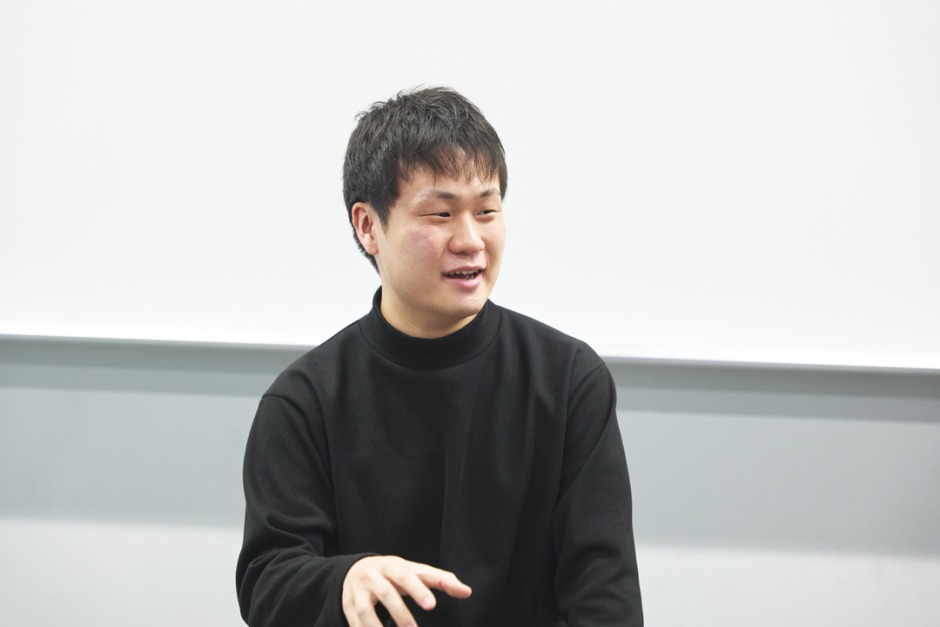
\コンプライアンス推進室からのアドバイス/
ハラスメントについて相談したいときは、学内外両方に問い合わせ先があります
学生生活を送る中で「ハラスメントかな?」と思ったら、一人で我慢せずに、信頼できる人やコンプライアンス相談窓口(学内・学外)に相談してください。コンプライアンス相談窓口は守秘義務を負って話を聞き、相談者の気持ちや意思を尊重し解決方法を共に考えます。無料で相談でき、また相談者の許可なく他者に相談内容を伝えることはありませんので、安心してください。匿名での相談も可能です。なお相談の際には、状況を確認するための資料などを提出してもらう場合もあります。
また、校友(卒業生)や企業担当者からのハラスメントについても、コンプライアンス相談窓口に相談してください。関係する部署と連携して対応するなど、進め方や解決方法などを検討します。

ハラスメントを無くすために、意識したいこと
――「ハラスメント」を無くしていくために、大学側にしてほしい取り組み、学生自身が意識すべきことはなんでしょうか?
渡辺:やっぱり、どこに相談していいか、ほとんどの学生は分からないはず。大学側にはそのアピールをもっとしてほしいですね。
加藤:あとは、大学側も先生も学生も、もっとハラスメントについて意識を高め、日々アップデートすることが大切だと思います。「今の時代はセクハラに厳しいからね」とか「昔は大丈夫だったんだけど」という理解の仕方ではなく、もっと「なぜこの言い方はダメなのか」「教員と学生、それぞれどんな態度でいるべきなのか」という根本的な部分からハラスメントを理解する雰囲気を作っていけたらいいのかなと思います。
\ハラスメント防止委員会委員長からのアドバイス/
早稲田大学からハラスメントを無くすため、学生に心掛けてほしいこと
コンプライアンス相談窓口に寄せられる相談内容を丁寧に見ていくと、ハラスメント問題には、コミュニケーション不足による気持ちのすれ違いや、相手を尊重する気持ち、思いやり、配慮などの不足が背景となっているケースが多いと感じます。これはすなわち、ハラスメントが生じるリスクは、私たち誰しもの何気ない対人関係の中に存在していると思ってください。
自分では、「何気ない、あるいは悪意のない言動」のつもりでも、相手にとっては不快と感じることがあると意識しておくことが大切です。ぜひ皆さん、お互いに優しさと思いやりある豊かな人間関係を広げていき、楽しく充実した大学生活を送ってください。
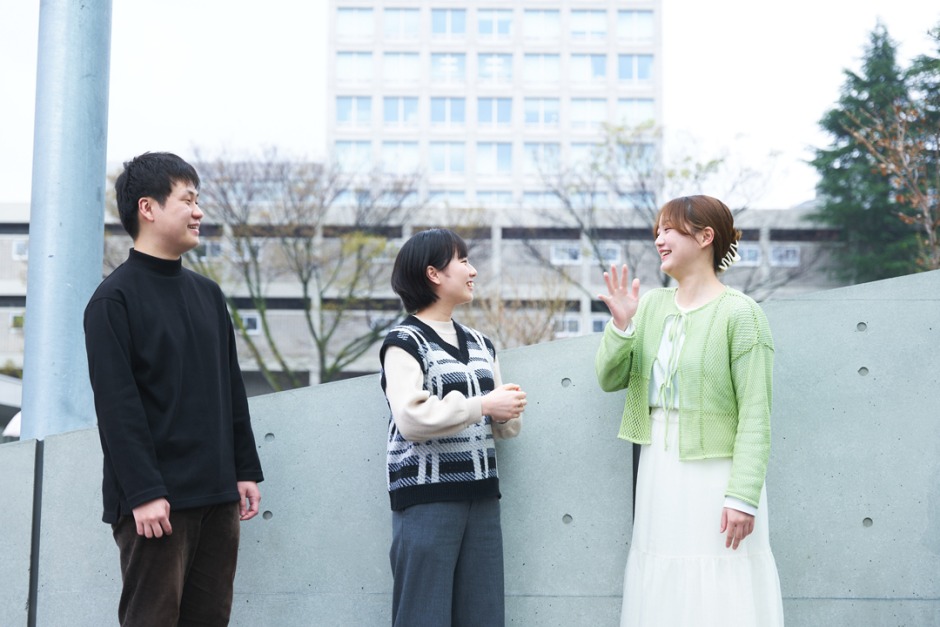
いざ困ったら、コンプライアンス相談窓口に問い合わせよう!
コンプライアンス相談窓口
◆学内窓口(コンプライアンス推進室)
連絡方法:Webフォーム、メール(面談は予約制)
開室時間:月~金 9:30~17:00
URL:https://www.waseda.jp/inst/harassment/
E-mail:[email protected]
◆学外窓口(NEC VALWAY株式会社)※英語・中国語対応可能
連絡方法:Webフォーム、メール、電話
受付時間:月~金 8:30~19:00、土 8:30~17:00
URL:https://koueki-tsuhou.com/WFcxVtaEFdCd/
TEL:0120-123-393
「ハラスメントにあたるか分からないけれど相談してもいいの?」「相談後の流れを知りたい」などのよくある質問をWebサイトに掲載しています。併せて確認してみてください。
コンプライアンス推進室が入る19号館の外観(左)および相談室の一つ(右)
取材・文:オグマナオト(2002年第二文学部卒業)
撮影:小野 奈那子
【次回フォーカス予告】5月13日(月)公開「大学院特集」

